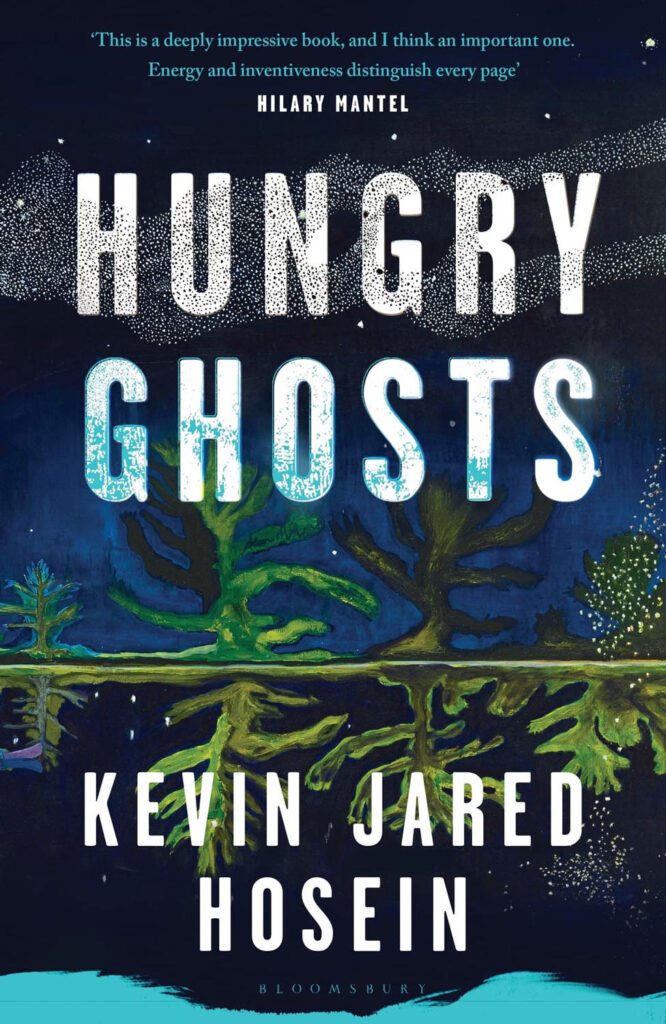This month’s reading picks from the Caribbean, with reviews of Hungry Ghosts by Kevin Jared Hosein; The Adventures of a Black Edwardian Intellectual by Pamela Roberts; The Animated Universe by Samantha Thornhill; and Where Dogs Bark with Their Tails by Estelle-Sarah Bulle
Hungry Ghosts
by Kevin Jared Hosein (Bloomsbury, 352 pp, ISBN 9781526644480)
In the brutal, unforgiving world of Kevin Jared Hosein’s sophomore novel for adults, images of biological retribution abound. One unsettling metaphor for violent twins likens them to carrion, feasting on the fleshy remainders of overseers. 1940s Trinidad leaps uncompromisingly from the pages in Hosein’s ornately hammered prose; this is a tale of two lineages with no easy victories and no peaceful deaths. The author, winner of the 2018 Commonwealth Short Story Prize, has taken narrative pains to present an emotional ecosystem that not only feeds on loss, but thrives on sorrow. When the stalks of the cane fields rustle in Hungry Ghosts, the reader can sense menace rippling through the air; this novel’s heart balefully bleeds. The tussle for power and position between two Indo-Trinidadian families, the Changoors and the Saroops, reads magnificently like Chekhov brined in Caroni puncheon rum.
The Adventures of a Black Edwardian Intellectual
by Pamela Roberts (Signal Books, 316 pp, ISBN 9781838463069)
Born in Antigua in 1873, James Arthur Harley left those shores propelled by the clarion call of that great social redeemer: education. A scholar at Howard, Harvard, Yale, and Oxford universities, an ambitious polymath, Harley’s accomplishments are all the more hard-won because they were earned during one of racism’s most productive ages. In this first full-length study of Harley’s life, biographer and fellow Antiguan Pamela Roberts constructs a complex, illuminating architecture, never adulatory in its focus. Exploring the intersections of Harley’s mixed-race Caribbeanness with his intellectual prowess, Roberts pinpoints the acute pressures facing Black excellence in Jim Crow America and institutionally racist Oxford. Some 80 years after James Arthur Harley’s passing, this book is the chronicle of not only one extraordinary life, but a movement of unassailable Black scholarship.
The Animated Universe
by Samantha Thornhill (Peepal Tree Press, 72 pp, ISBN 9781845235383)
Today I throw up prayers, double helix my locs into Bantu knots / and tighten the laces on my winged Tims preparing to elevate. In prophetic urban odes, Samantha Thornhill’s first book of poems assembles hurricanes, rebellions, and the heartbeats of sojourners, homeward bound. Trinidadian Thornhill’s years of experience in crafting poems shines through in these spiritually affixed offerings. Drawing from the deep wells of Black American and Caribbean legacies, The Animated Universe is at once cosmic and community-oriented in scope. Here, the voices of the ancestral departed are afforded as much ceremony as the concerns of the living. Elegies for comrades destined to be remembered align with a poem in the imagined voice of Kunta Kinte, addressing the incarcerated whale Shamu in heart-wrenching solidarity. The poet’s gestures are inclusive at every verse, redemptive and triumphant.
Where Dogs Bark with Their Tails
by Estelle-Sarah Bulle (Farrar, Straus and Giroux, 304 pp, ISBN 9780374289096)
Told by the overlapping tongues of the Ezechiel clan, Where Dogs Bark with Their Tails is a prismatic longing for the homeland of Guadeloupe and the tiny, verdant village of Morne-Galant. Translated from the French by Julia Grawemeyer, the central figure of the novel is the island: the Ezechiels orbit it like restless moths, by turns repulsed by and relentlessly drawn to its quotidian mysteries. Bulle, of Guadeloupean and Franco-Belgian parentage, conjures confessional passages across the four narrators’ accounts in which to explore créolité. Each family member, from resplendent matriarch Antoine to her Parisian-born successor, “the niece”, contends with the emotional implications of their mixed-race identity; acts of unmooring and resettling wend through the novel with fervency. A contemplative tale of dynasty, this marks an eagerly welcome addition to French Caribbean literature in translation.

